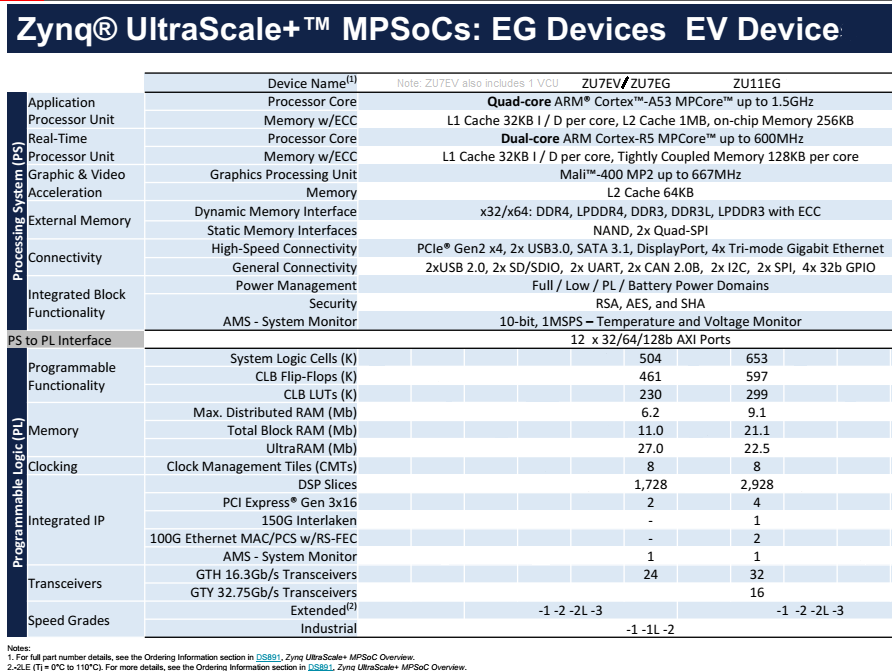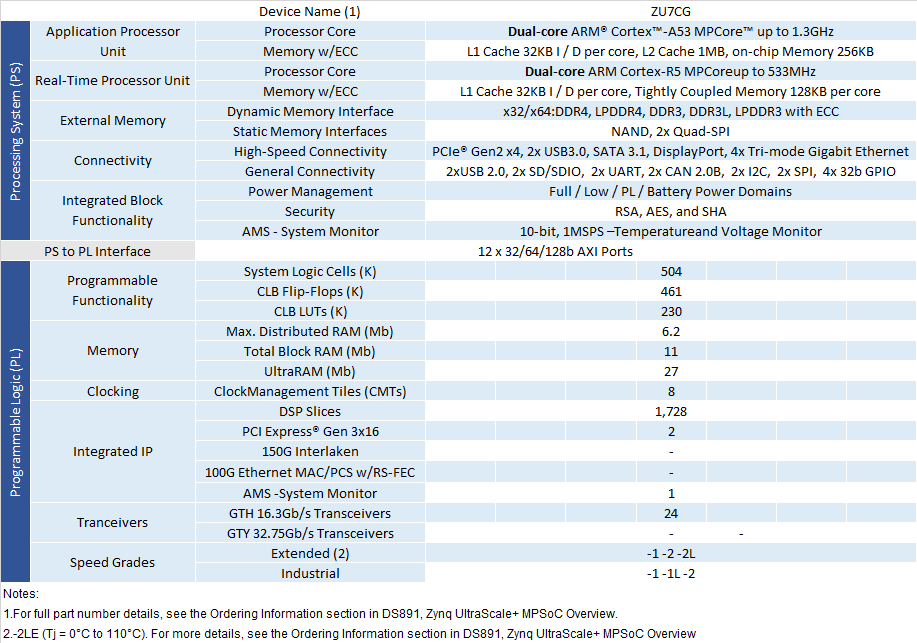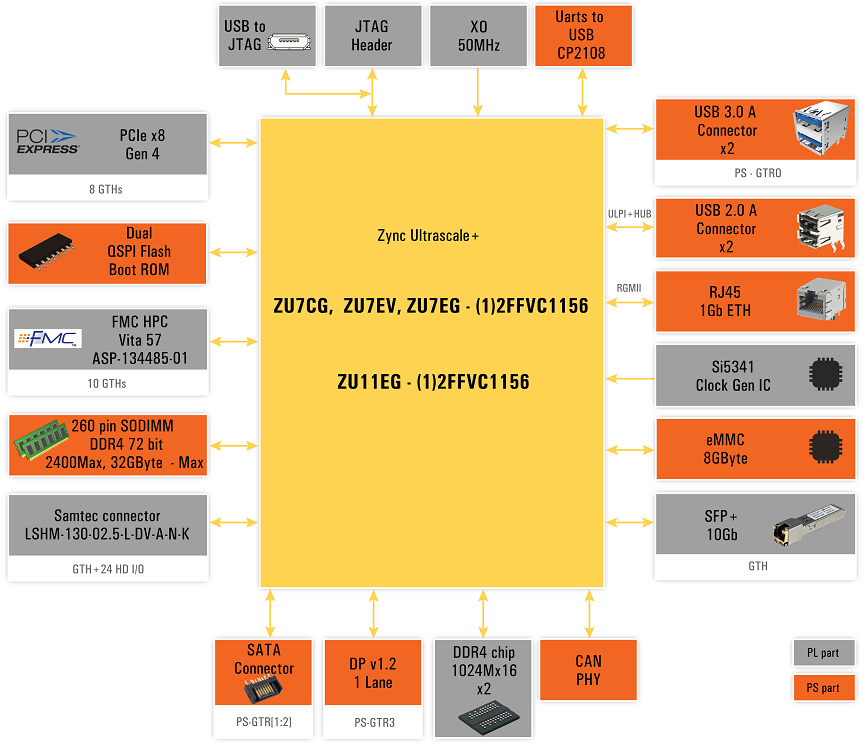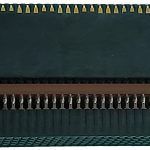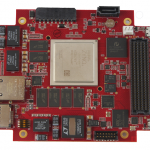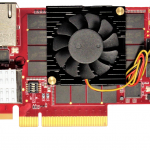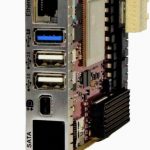The SE120 is based on the Xilinx Zynq UltraScale+ family. Depending on the choice of Zynq device, (XCZU7EV / XCZU7EG/ XCZU11EG / XCZU7CG in C1156 package) it can be used for video decoding/encoding, digital communication, image processing, and AR/VR applications. Sundance DSP supplies several FMC 57.1 compliant mezzanine modules ranging from MIPI, Cameralink, SFP+, and many other I/O standards. The combination of Sundance’s SE120 and the wide variety of FMC mezzanine cards allows for the system to be a suitable platform for a plethora of advanced solutions. The selection of Zynq that can be used on this board and their available resources are shown below. Summary of devices and available resources:
Features
- Zynq Ultrascale+ MPSoC (XCZU7EV-2FFVC1156E / XCZU7EG/ XCZU11EG / XCZU7CG )
- 4GB of DDR4 for PL
- Flash memory for user bitstream storage
- 8GB of eMMC for running the OS and other embedded applications (attached to PS)
- USB JTAG through USB2.0 connector
- SFP+ attached to PL
- System monitoring
- x8 lanes PCIe Gen4
- Build option to use SE120 as PCIe host
- cooling fan for attached FMC.
- 1 FMC expansion site with 10 GTH at 16.3Gb/s transceivers and 80 LVDS IO pairs
- Samtec LSHM connector with GTH and 24 HD IOs
- Video Codec H.265/H.264 with XCZU7EV
- GTH, GTY, 100EMAC, and Interlaken, when fitted with XCZU11EG
- for the ARM processors within the Zynq following interfaces are available:
- Display port v1.2 with one data lane, only transmit supported
- 2x USB UART
- 1x CAN
- Up to 32 GB of SDRAM via DDR4 SODIMM to PS
- 2 xUSB 3.0
- 2 x USB2
- 1 x SATA
- 1 x RJ45
Applications
- Artificial Reality / Virtual Reality ( AR/VR)
- Digital Communications
- Network Acceleration
- Data Centers
- High-performance optical networking
- High-end Image Processing
- ASIC/SOC prototyping and development
- Machine Vision
- Machine Learning
- Intelligence and security,
- High-performance computing
- High Frequency/Speed stock trading
- Defense
Additionally, depending on the device fitted (CG, EG, or EV) to the SE120, different sets of applications may be better suited for the board as shown in the table below. Additionally, other form factors of this design exist, based on PXIe and PCIe104 form factors, which may be more suitable for a specific application.
| CG | EG | EV |
| • Sensor Processing & Fusion • Motor Control • Low-cost Ultrasound • Traffic Engineering | • Flight Navigation • Missile & Munitions • Military Construction • Secure Solutions • Networking • Cloud Computing Security • Data Center • Machine Vision • Medical Endoscopy | • Situational Awareness • Surveillance/Reconnaissance • Smart Vision • Image Manipulation • Graphic Overlay • Human Machine Interface • Automotive ADAS • Video Processing • Interactive Display |
Click here for a 3D Model of SE120
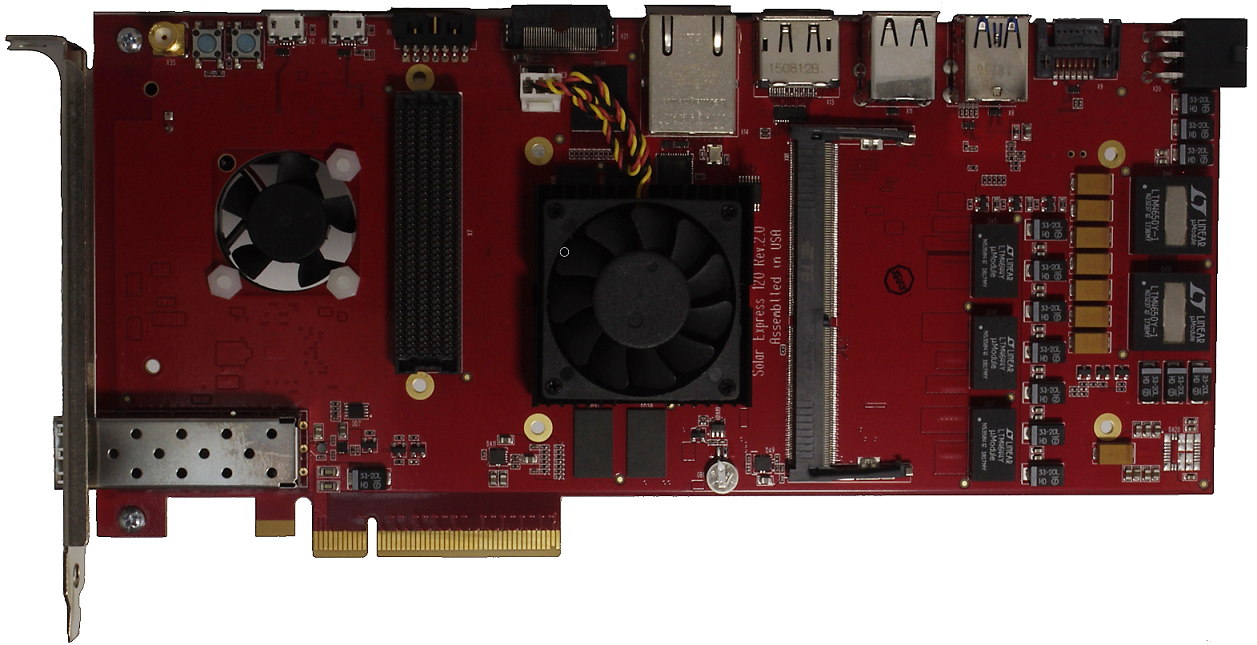 |
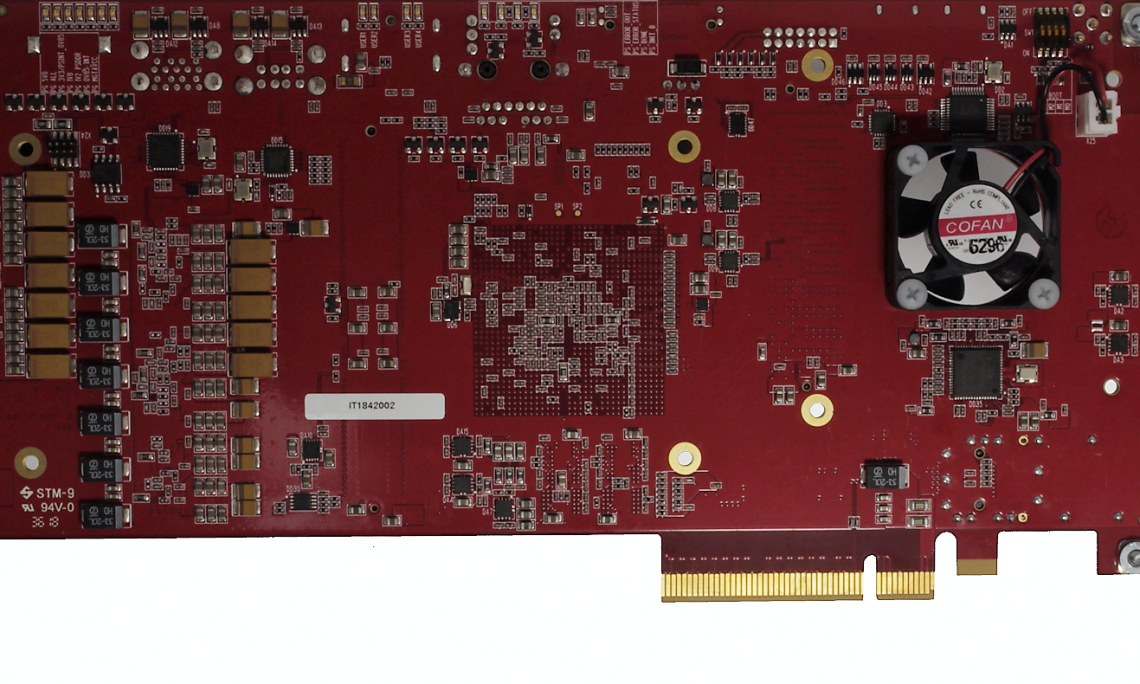 |
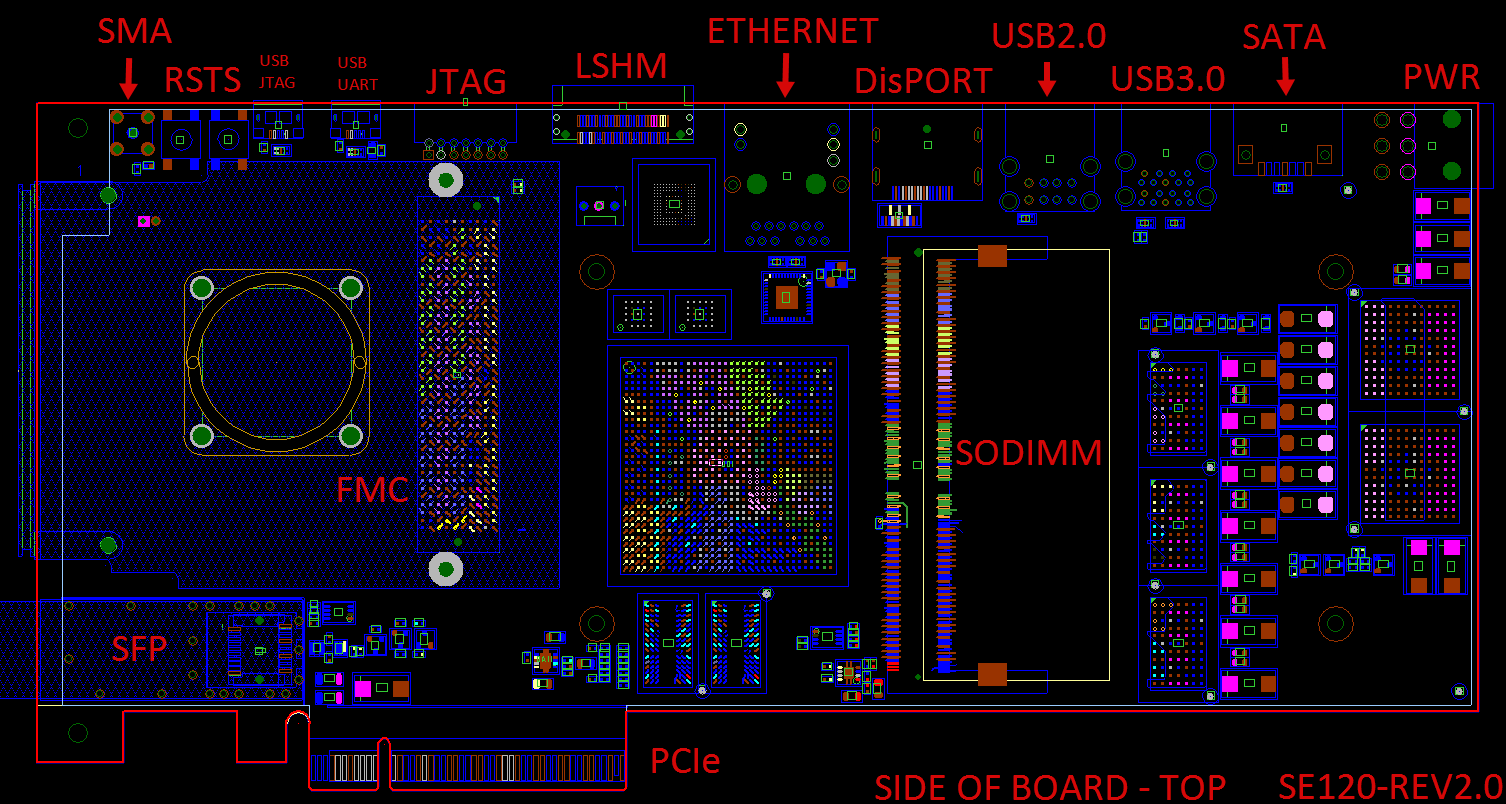 |
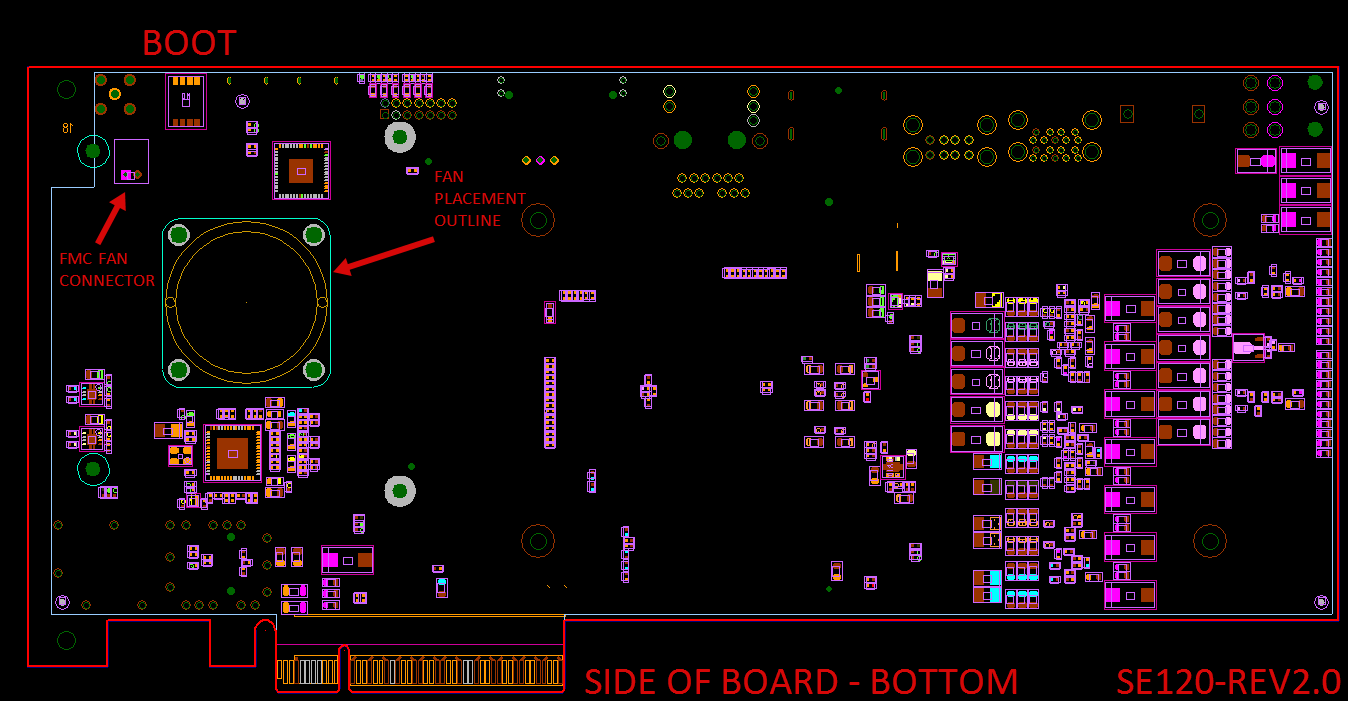 |
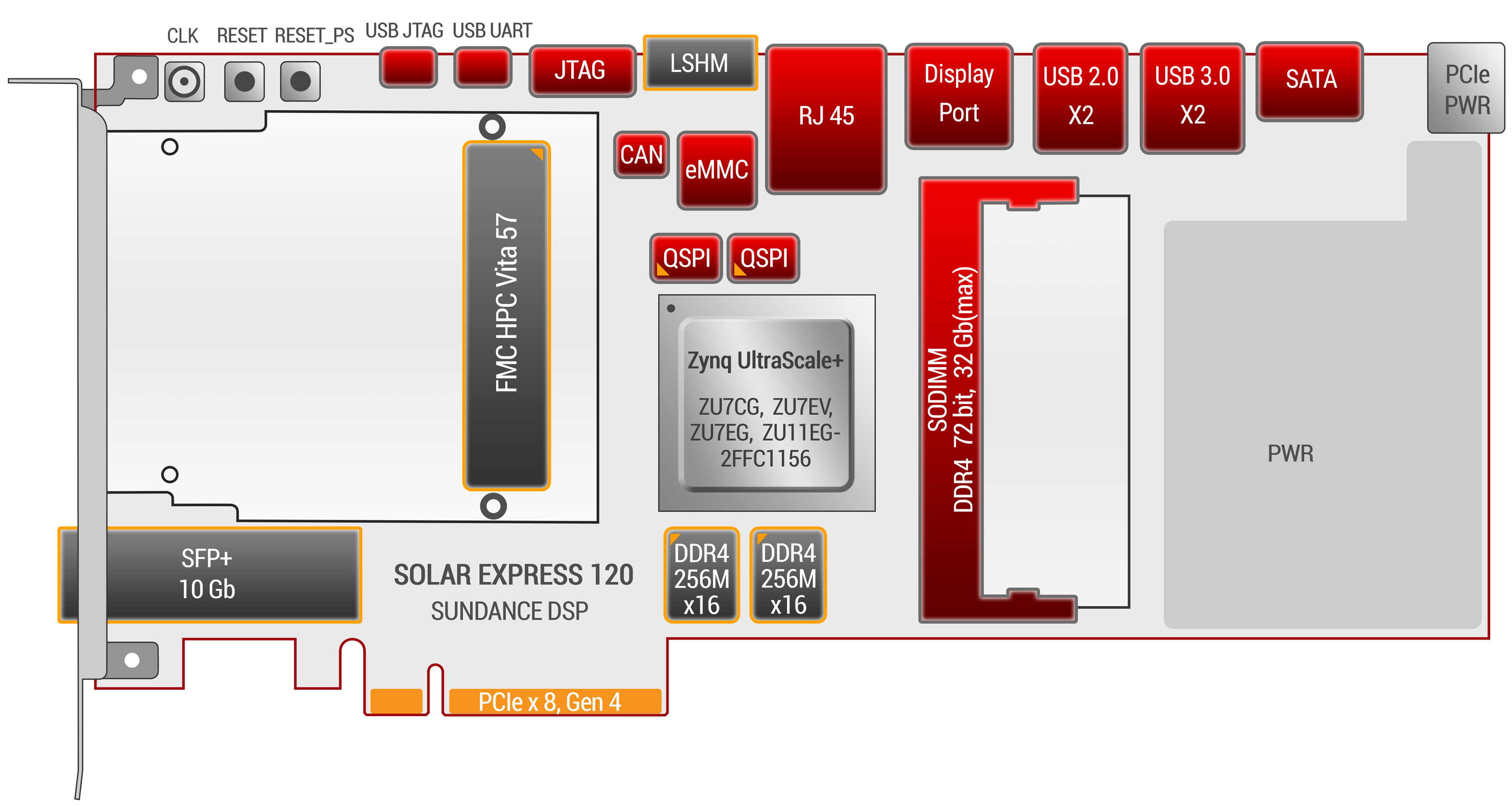 |
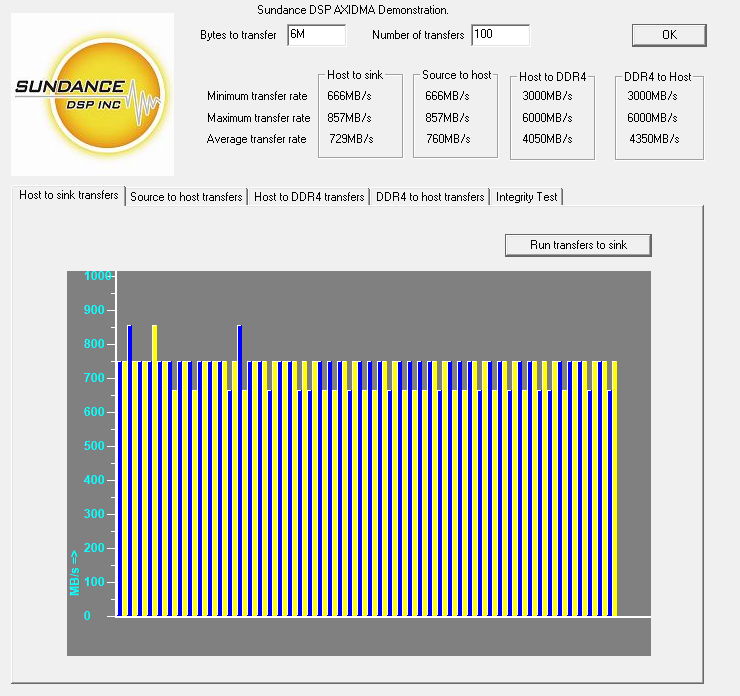 |
| Component side | Solder side | Component side locations | Solder side locations | Location of interfaces | PCIe performance |
Block Diagram
The board files and BSP for Vivado (2019.1 and later) are supplied. A PCIe driver package for Linux and Windows 10, for the SE120 is also provided.
SE120-xyy-z-t
x = 7 or 11 in the case of EG only
yy = CG, or EV or EG
Z = speed grade which by default is -2 but -1 can be selected.
t = temperature grade. Default is -E which is extended but -C (commercial) or -I (industrial) can be selected

